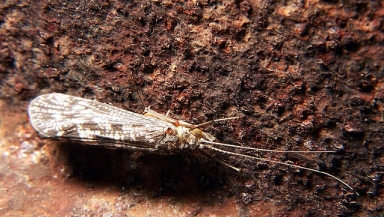
Here's another possible headache for those who advocate the evolutionary theory.
A team of Polish and Brazilian scientists recently published a study in the journal "Scientific Reports" where they discussed a puzzling discovery: fossilised silk cocoons that may date back some 295 million years ago or during the Early Permian era.
The scientists were particularly intrigued by how the insects called caddisflies were able to survive and protect themselves from decay just by the use of their larval cases.
"Caddisflies (Trichoptera) are small, cosmopolitan insects closely related to the Lepidoptera (moths and butterflies)," the researchers stated in their report, according to Christian News. "Most caddisflies construct protective cases during their larval development."
The scientists said that the larval cases are "primarily composed of whitish, transversely arranged and tightly joined together thin strips."
"In some instances, however, the cases may be completely disintegrated in the form of isolated strips chaotically scattered on the bedding plane. The strips form the main part of the cases and presumably represent the fossilised remnants of the silk material used by the larvae for case construction," they stated.
Brian Thomas, Science Writer for the Institute for Creation Research (ICR), meanwhile, highlighted the fact that this discovery poses a major challenge to the evolutionary theory.
Thomas particularly stressed how the caddisflies seemingly were able to be exempted from evolution for millions and millions of years.
"It looks like ancient caddisfly larvae took exactly the same approach to underwater home construction as their living versions. If so, then how did these creatures manage to resist evolutionary changes over 295 million supposed years?" Thomas wrote in his article published by the ICR this week.
He further pointed out that based on earlier decay experiments, proteins "do not last one million years."
"If future research confirms these white caddisfly larvae casings as original silk proteins, then scientists set on conventional age assignments will face a new challenge explaining how actual strands of delicate silk could last almost 300 million years," he added.
















